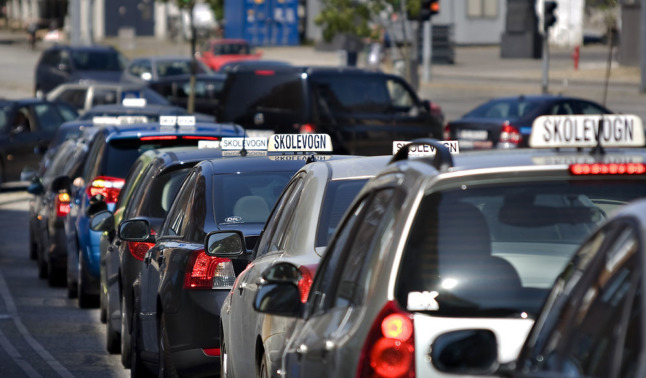More money in the bag
Starting September 1st, customers in the fruit and vegetable department at discount supermarket Aldi will have to pay for the thin plastic bags typically used to gather fruits, forking out over one cent per bag.
The popular chain is responding to criticism that too much plastic waste is produced through the food retail industry.
Environmentalists believe, however, that the small amount hardly acts as a deterrent to using the bags, and are demanding that higher prices be levied.

Photo: DPA
Better banking
The new European Payment Services Directive (PSD2), going into effect in September, is intended to better regulate payment services and payment service providers.
For consumers, the new EU directive changes three core things. In future, they will have to log on to their online banking system using what is known as two-factor authentication – meaning just one password will no longer suffice.
In addition, they’ll need to give further proof of identity. Depending on the bank, this can be either be through a PIN, a fingerprint or authentication using a smartphone, or a TAN list (a unique set of numerical passwords for each transaction).
But these TAN lists will no longer be printed on paper or generation by SMS starting September 14th, with many banks opting for TAN lists generated only by an app instead.
Let's talk business
DHL, Deutsche Post's parcel service, is increasing its list prices for business customers effective September 1st. As DHL explains in a press release, a toll surcharge of ten cents per parcel will be charged in future.
The price increase is the company's reaction to “a general increase in transport and personnel costs,” the press release states.

Less money for asylum seekers
Starting September 1st, single adult asylum seekers will receive less money through the amended Asylum Seekers Benefits Act (AsylbLG).
Those living in state accommodation will receive €310 in cash per month, as electricity and housing maintenance will be paid for separately.
For single people who do not live in collective accommodation, the amount will fall by €10 euros to €344 per month. For six to 13-year-olds, on the other hand, the benefit will increase by €26.
For refugees who do volunteer work, the federal government is also introducing a tax-free allowance of €200.
Mithilfe for midwives
Freelance midwives in Bavaria can apply for financial support starting September 1st, and even receive the so-called settlement premium of €5,000 if they move to the southern state after this date.
Permanently employed midwives who, in addition to their permanent position, also work freelance in obstetrics are also entitled to apply.
“The premium is intended to make it easier for freelance midwives to enter or re-enter this important profession,” says Bavarian Health Minister Melanie Huml (CSU).
Kita boost

Children play at a Kita in Wandlitz, Brandenburg. Photo: DPA
Parents rejoice: Starting in September, there will be no more costs for a kita spot for children aged 3 to 6 – regardless of the parent's income and the time spent looking after them.
READ ALSO: EXPLAINED: How each German state plans to improve childcare and lower Kita costs for families
For a crèche place (for children up to three years old), fees will only apply when parents have a household income of more than €50,000.



 Please whitelist us to continue reading.
Please whitelist us to continue reading.
Member comments